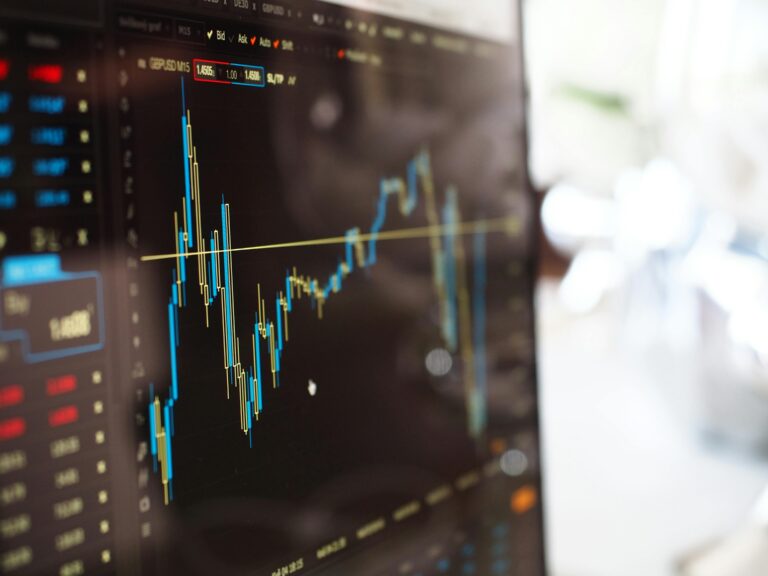The global stock market has been under intense scrutiny in recent weeks due to a combination of geopolitical tensions, government policies, and economic uncertainties. The sudden volatility in the market has left investors on edge, with major indices experiencing sharp declines. In this article, we’ll take a deep dive into the causes behind the recent stock market turmoil and explore the broader implications for the global economy. Additionally, we will highlight some political and business stories that are indirectly influencing investor sentiment.
Trade Wars and Economic Fallout
One of the major triggers for the recent market fluctuations is the ongoing trade war between the United States and China. Following President Trump’s decision to escalate tariffs on Chinese goods, China retaliated with its own set of tariffs, pushing the world’s two largest economies to the brink of an all-out trade war. On April 8, 2025, China announced a retaliatory 34% tariff on U.S. imports, signaling a significant escalation in the global trade dispute.
These tariffs have had a direct impact on stock market performance, as investors anticipate the negative effects on trade, corporate profits, and the global supply chain. The S&P 500 dropped more than 10% from its February peak, while the Nasdaq Composite index experienced a decline of 4%, signaling investor concern about a possible economic slowdown.
Corporate Governance: Ethical and Legal Concerns Amid Financial Uncertainty
As the stock market grapples with these external shocks, corporate governance and legal issues within major companies are also playing a crucial role in shaping investor sentiment. For instance, recent discussions surrounding hush-money scandals have raised significant ethical and legal questions about corporate leadership and responsibility. These scandals, which have made headlines in recent months, serve as a reminder that corporate leaders need to be held accountable for their actions, not just in financial matters but in personal and legal issues as well.
To delve deeper into the ethics and legal implications of such scandals, you can explore a detailed analysis of hush-money cases, which discuss the moral considerations behind corporate decisions and their potential impact on stock prices. Hush Money Scandals: Ethical and Legal Perspectives
Political Landscape Shaping Investor Confidence
In addition to international trade tensions, domestic political developments are also influencing market trends. Recently, Scott Bessent, a prominent hedge fund manager and former Treasury pick, announced that he would divest $700 million in assets to avoid any potential conflicts of interest as a result of his involvement in government decision-making. This move raises important questions about the intersection of politics, business, and market stability.
Bessent’s decision to step down and divest assets in the face of potential conflicts of interest underscores the growing scrutiny of individuals in powerful political positions. For a more in-depth look at Scott Bessent’s decision and its implications for financial markets, read the full story in our article, Scott Bessent to Divest $700M in Assets to Avoid Conflicts as Treasury Pick.
The shifting political dynamics within the United States, particularly as it relates to President Trump’s proposals, have sparked significant rifts within the Republican Party. Trump’s recent push for remote voting for new parents has been met with strong opposition from conservative factions within the GOP. This political divide has the potential to destabilize the party’s cohesiveness, which could have further implications for market stability. To understand the nuances of this political rift, explore our article on the topic: Trump Backs Remote Voting for New Parents, Sparking Rift Within GOP.
The Future of Aviation Politics and Market Implications
Amid all this uncertainty, the aviation industry continues to play a pivotal role in global economics. With air travel on the rebound, the politics surrounding the aviation sector is more important than ever. In a recent interview, aviation expert Mark DiLullo offered valuable insights into how political shifts, such as changes in regulatory policies, could affect the future of aviation.
The Trump administration’s approach to aviation politics could have far-reaching consequences for both the stock market and global air travel. The future of this vital industry will depend on how political leaders navigate the complex challenges posed by both economic and environmental concerns. For insights into this important sector, check out our article on the future of aviation and its political implications: The Future of Aviation Politics: Insights from Mark DiLullo, Donald Trump.
Impact of Global Trade on U.S. Economy and Stock Market
The ongoing trade war between the U.S. and China, and the retaliatory tariffs that have been imposed, are contributing significantly to the uncertainty surrounding the U.S. economy. With Trump’s recent announcement of sweeping tariffs, including a 10% baseline on all imports, global stock markets have been rattled. The U.S. economy faces the potential of a prolonged period of inflation and reduced trade volume, which may harm the stock market in the short term.
Moreover, China’s aggressive tariff response could limit U.S. businesses’ ability to access key international markets, further damaging corporate profits and stock performance. The growing global trade war is a central factor driving market sentiment and influencing investor decisions. For a more detailed look at the escalating trade conflict between the U.S. and China, read our article, China Retaliates Against Trump with 34% Tariff on U.S. Goods, Escalating Global Trade War.
Conclusion: Navigating Uncertainty
As we continue to navigate this volatile period in the stock market, it is clear that both domestic and international factors are at play. Political decisions, corporate scandals, and ongoing trade conflicts are creating an environment of uncertainty for investors. Whether the market will recover in the short term or face a longer downturn remains to be seen. However, it’s crucial for investors to stay informed and understand the broader political and economic contexts that are influencing these shifts.
By examining these interconnected factors—trade wars, corporate governance issues, political divisions, and industry-specific challenges—we can gain a clearer picture of the market’s trajectory in the coming months.


